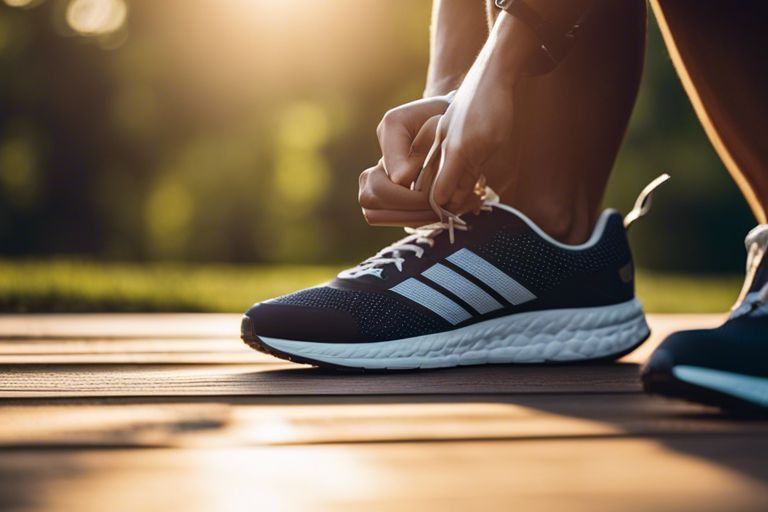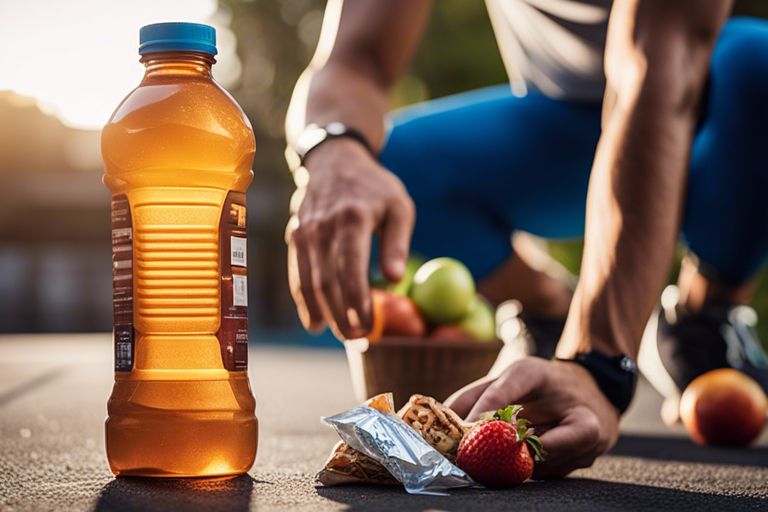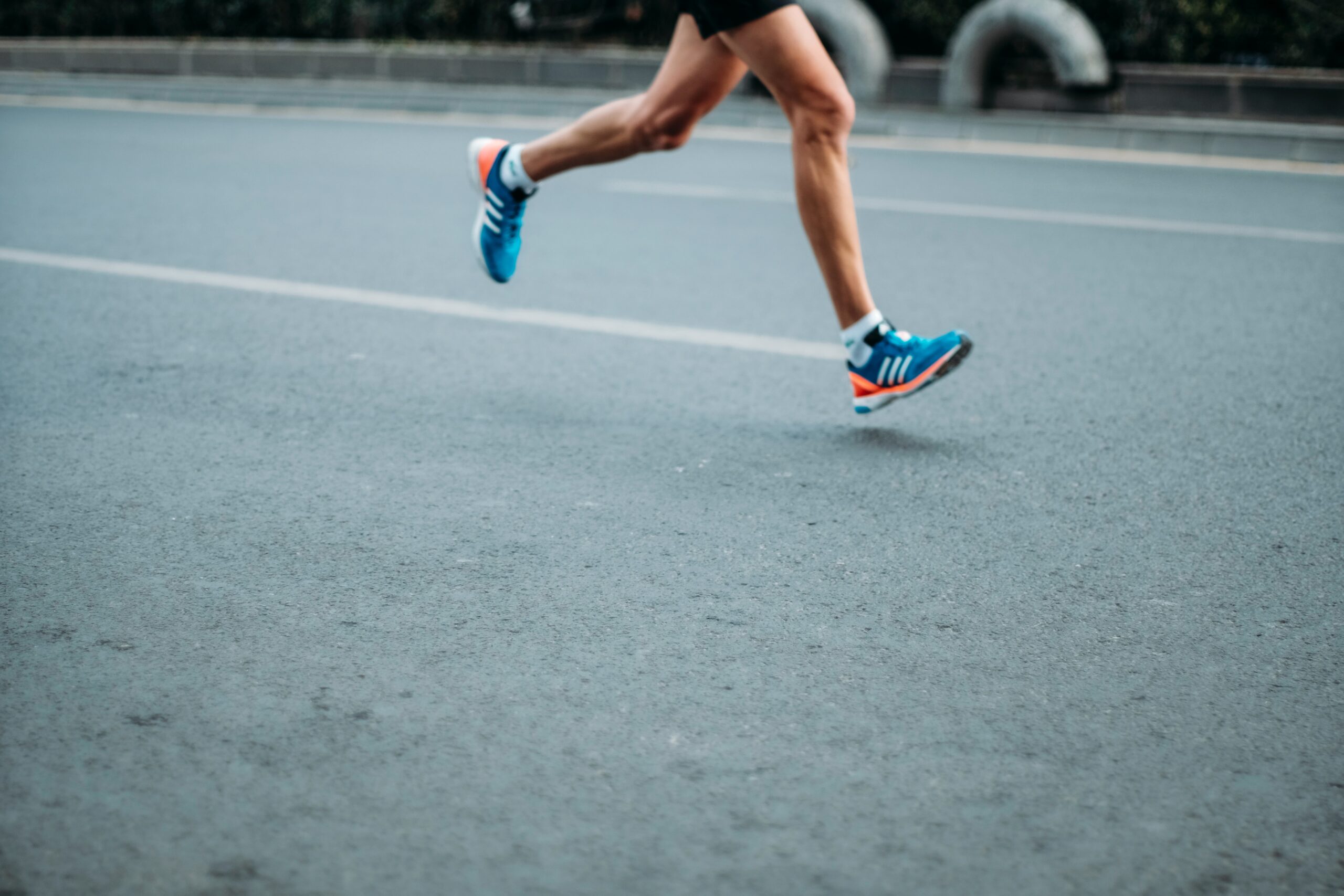Proper nutrition plays a crucial role in achieving optimal performance during a jogging session. What you eat before a run can significantly impact your energy levels, endurance, and overall experience. In this blog post, we will research into the importance of pre-run fuel and explore the best foods to consume to enhance your jogging performance. Whether you are a seasoned runner or just starting out, understanding the right fuel for your body can make a world of difference in your jogging routine.
Key Takeaways:
- Carbohydrates are necessary: Consuming carbohydrates before a run provides the necessary energy for a successful jog.
- Avoid high fat and fibre foods: Foods high in fat and fibre can lead to stomach discomfort and may hinder your running performance.
- Hydration is key: Staying hydrated is vital before a run to maintain energy levels and prevent dehydration.
- Opt for easily digestible foods: Choose light, easily digestible snacks like bananas, toast with honey, or a small bowl of cereal before your jog.
- Timing matters: Aim to eat your pre-run meal 1-2 hours before your jog to allow for digestion without feeling too full or bloated.
Understanding Pre-Run Nutrition
The Science Behind Fueling for a Jog
Proper fueling before a run is crucial for optimal performance and to prevent fatigue. Carbohydrates are the body’s preferred source of energy during exercise, as they are easily broken down into glucose for quick energy. Consuming a balance of carbohydrates, protein, and a small amount of healthy fats can help sustain energy levels and support muscle function during your run.
Timing Your Pre-Run Meal
The timing of your pre-run meal is crucial to avoid feeling sluggish or experiencing digestive issues while running. Ideally, aim to eat a meal containing carbohydrates and protein around 1-2 hours before your run. This allows enough time for digestion and absorption of nutrients, providing you with the energy you need to perform at your best.
It’s also important to consider the size of your pre-run meal. A small snack may be sufficient if you are running a short distance, while a larger meal may be necessary if you are preparing for a long run. Experiment with different timings and meal sizes to find what works best for your body and running routine.
What to Eat Before a Jog
The Best Carbohydrates for Energy
As far as preparing for a jog, choosing the right carbohydrates is key. Opt for complex carbohydrates such as whole grains, fruits, and vegetables. These sources release energy slowly, providing you with a sustained fuel source for your run. Avoid simple carbohydrates like sugary snacks or refined grains, as they can cause energy spikes and crashes.
Proteins and Fats: How Much and When
Proteins and fats play a crucial role in pre-run nutrition. While carbohydrates take centre stage for providing energy, proteins and fats are important for muscle repair and satiety. Aim to include a small amount of lean protein, like chicken or tofu, and healthy fats, such as nuts or avocado, in your pre-run meal. Keep the portion sizes moderate to prevent any digestive discomfort during your jog.
It’s best to consume a balanced meal containing carbohydrates, proteins, and fats around 2-3 hours before your jog. This timing allows for proper digestion and absorption of nutrients, ensuring you have the energy and sustenance needed for a successful run.
Hydration Strategies for Joggers
The Importance of Water Balance
Proper hydration is necessary for joggers as water plays a vital role in maintaining bodily functions, regulating body temperature, and transporting nutrients. Dehydration can lead to decreased performance, muscle cramps, and fatigue. It is important to continually monitor your water intake to ensure a healthy balance.
Pre-Run Hydration Tips
Before heading out for a run, it is crucial to hydrate adequately to prepare your body for the exercise ahead. Aim to drink around 500ml of water 2-3 hours before your run to ensure proper hydration levels. Avoid excessive consumption right before your run to prevent any discomfort. Electrolyte-enhanced drinks can also be beneficial to replenish lost minerals during your jog.
- Avoid sugary drinks that can cause rapid spikes and crashes in blood sugar levels
- Opt for water or electrolyte-enhanced drinks to maintain hydration levels
After completing your run, continue to drink water to rehydrate your body effectively. Monitoring your urine colour can indicate whether you are properly hydrated – aim for a light yellow colour for optimal hydration levels.
- Replenish fluids lost during your run by sipping water over the next few hours
- Include electrolyte-rich foods in your post-run meal to restore lost minerals
Meals and Snack Ideas
Quick and Easy Pre-Run Snacks
In terms of pre-run snacks, simplicity is key. Opt for easily digestible carbohydrates to fuel your run without weighing you down. Great options include a banana with a tablespoon of nut butter, a small handful of trail mix, or a slice of wholegrain toast with honey. These snacks provide the necessary energy to power you through your run without causing any stomach discomfort.
Recipe Ideas for Pre-Run Meals
Preparing a balanced meal before a run can help you perform at your best. Consider whipping up a bowl of overnight oats with fresh fruit and a sprinkle of nuts, a grilled chicken wrap with colourful veggies, or a pasta salad with lean protein and a variety of vegetables. These meal ideas offer a good mix of carbohydrates, proteins, and fats to sustain your energy levels throughout your run.
Experiment with different combinations to find what works best for your body. Avoid heavy, greasy foods that may lead to gastrointestinal issues during your run. It’s important to listen to your body and fuel it with nutritious options that will support your performance and recovery.
Special Considerations
Adapting Nutrition for Distance and Intensity
In terms of adapting your nutrition for different distances and intensities of runs, it’s crucial to match your food intake to your energy expenditure. For longer runs, focus on consuming easily digestible carbohydrates to sustain energy levels. High-intensity sessions may benefit from a balanced mix of carbohydrates and protein to support muscle recovery and performance. Experiment with your pre-run meals to find what works best for you based on the duration and intensity of your run.
Dietary Adjustments for Different Times of Day
Timing your meals around your runs can significantly impact your performance and how you feel during your workout. For morning runs, opt for a light meal that provides carbohydrates for quick energy. Evening runs may benefit from a balanced meal a few hours beforehand to avoid feeling sluggish. Pay attention to how different foods affect your body at various times of the day and adjust your intake accordingly to enhance your running experience.
Jogging and Nutrition – What to Eat Before a Run
In the aggregate, your pre-run nutrition plays a crucial role in your jogging performance. Opt for easily digestible carbohydrates like a banana or toast with honey for a quick energy boost. Include a source of protein like yoghurt or a boiled egg to support muscle repair and growth. Hydration is key, so drink water or a sports drink before your run. Avoid high-fat and high-fibre foods that can lead to discomfort while jogging. Experiment with different options to find what works best for you, and remember to eat at least 30 minutes before lacing up your running shoes. A well-balanced pre-run meal or snack will help fuel your body, improve your performance, and make your jogging experience more enjoyable.
FAQ
Q: What should I eat before going for a run?
A: It is recommended to consume easily digestible carbohydrates, such as a banana or toast with honey, about 30 minutes to an hour before your run to provide a quick source of energy.
Q: Is it important to stay hydrated before a run?
A: Yes, staying hydrated is crucial before a run. Drink water about 15-20 minutes before your run to ensure you are properly hydrated and to prevent dehydration during your exercise.
Q: Can I eat protein before a run for energy?
A: While protein is vital for muscle repair and growth, it is not the best source of immediate energy before a run. Focus more on carbohydrates for a quick energy boost.
Q: Are there any foods to avoid before a run?
A: Avoid foods high in fat and fibre before a run as they can cause stomach discomfort and slow down digestion, leading to discomfort during your run.
Q: How soon after a run should I eat to aid recovery?
A: It is ideal to consume a balanced meal containing carbohydrates and protein within 30 minutes to an hour after your run to help replenish glycogen stores and support muscle recovery.






